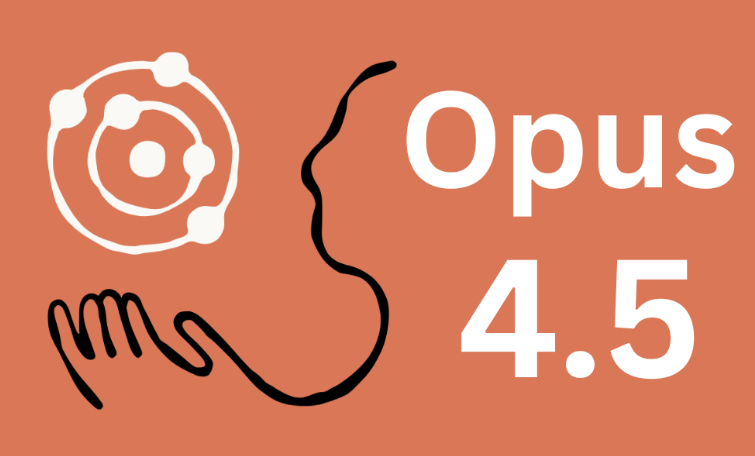
In today's rapidly evolving AI landscape, the Claude Opus 4.5 vs Opus 4.1 comparison has become a critical topic for professionals. Understanding the nuances between these powerful models provides invaluable insights for developers, researchers, and business leaders alike.
This comprehensive guide explores the key differences, from agentic capabilities and performance benchmarks to pricing and accessibility. We'll provide the practical knowledge you need to determine which model best suits your complex challenges and strategic goals.
Introducing Claude Opus 4.5: A Leap in AI Capabilities
Released in November 24, 2025, Claude Opus 4.5 marks a significant milestone in artificial intelligence. It delivers state-of-the-art performance that pushes the boundaries of what's possible, excelling in areas that demand deep understanding, autonomy, and sophisticated problem-solving. This new model represents a major evolution, designed to tackle complex challenges with greater nuance and independence.
What's New in Opus 4.5: Key Features and Improvements
Claude Opus 4.5 introduces a suite of enhancements focused on advanced cognitive abilities. The model demonstrates superior reasoning, allowing it to navigate ambiguity and solve intricate problems with less human guidance.
Key improvements include:
- Advanced Reasoning: An enhanced ability to understand deep context and execute multi-step logical operations.
- Improved Vision: More accurate and context-aware analysis of images, charts, and other visual data.
- Mathematical Proficiency: Greater precision and reliability in solving complex mathematical and quantitative problems.
The debate of Claude Opus 4.5 vs Opus 4.1 highlights a clear generational leap. While Opus 4.1 was a strong performer, Opus 4.5 refines these core competencies to an entirely new level.
| Capability | Predecessor (Opus 4.1) | Claude Opus 4.5 |
|---|---|---|
| Vision Analysis | Advanced | Significantly Improved |
| Complex Reasoning | Strong | State-of-the-Art |
| Mathematics Skills | Proficient | Enhanced Accuracy |
| Agentic Tasking | Foundational | Highly Autonomous |
Opus 4.5 Performance Benchmarks: Coding, Agents, and Beyond
Opus 4.5's advancements are validated by its exceptional performance on industry-standard benchmarks. It has achieved top scores on challenging evaluations like SWE-bench Verified, which measures an AI's ability to resolve real-world software engineering issues. This result demonstrates a significant advancement over previous models, showcasing its robust coding and problem-solving prowess.
This leap in performance is not just incremental; it signifies a new capacity for AI to function as a reliable collaborator in technical domains, handling tasks that were previously out of reach.
Understanding the ‘Agentic Power' of Opus 4.5
The term ‘agentic power' refers to the model's ability to operate as an autonomous agent. It can understand a high-level goal, break it down into sub-tasks, execute a plan, and self-correct along the way. Opus 4.5 excels here, leveraging its improved reasoning to manage complex, multi-step workflows with minimal human intervention. This makes it a powerful tool for automating research, development, and complex data analysis pipelines.
Claude Opus 4.1 vs. Opus 4.5: A Deep Dive Comparison
The evolution from Claude Opus 4.1 to 4.5 marks a shift from a highly competent generalist to a specialized powerhouse for complex, high-stakes tasks. While both models are formidable, the Claude Opus 4.5 vs Opus 4.1 comparison reveals distinct advantages in the newer iteration, particularly in reasoning, endurance, and strategic problem-solving.
Head-to-Head Performance: Benchmarks and Real-World Data
On paper, Opus 4.5 demonstrates a clear lead in standardized evaluations. The model has shown superior performance on benchmarks designed to test advanced coding and reasoning, such as SWE-bench Multilingual (for software engineering) and τ2-bench (for tool use and agentic reasoning).
While specific percentage gains are not publicly verifiable, the trend indicates a significant leap in proficiency, translating directly to real-world impact. Opus 4.1 remains a strong all-rounder, but Opus 4.5 offers a noticeable upgrade where precision and multi-step accuracy are paramount.
| Benchmark Category | Claude Opus 4.1 | Claude Opus 4.5 |
|---|---|---|
| Multilingual Coding | Strong Performance | Higher Performance |
| Agentic Tool Use | Capable | Advanced Capability |
| Complex Reasoning | High | Superior |
Agentic Capabilities: Endurance, Reasoning, and Problem-Solving
The primary differentiator for Opus 4.5 lies in its enhanced agentic capabilities. It demonstrates a superior ability to maintain context and adapt its strategy over extended, multi-turn interactions.
Consider these scenarios:
- Debugging Legacy Code: While Opus 4.1 can identify common errors, Opus 4.5 can methodically trace intricate dependencies across multiple files, propose novel fixes, and simulate outcomes, acting more like a senior developer.
- Scientific Research:
Opus 4.5 can sustain a long-form dialogue to analyze research papers, synthesize findings, and formulate new hypotheses with greater coherence and insight than its predecessor.
The Strategic Planning Advantage: Which Model for Complex Tasks?
Opus 4.5's advanced reasoning directly aids in strategic planning. It can deconstruct ambiguous, high-level goals into actionable, sequenced steps. For example, when tasked to “Develop a market entry strategy for a new SaaS product,” Opus 4.5 can perform a more nuanced analysis, identify competitor weaknesses, and construct a multi-phased plan with contingencies.
In the Claude Opus 4.5 vs Opus 4.1 matchup, the choice is clear: for general-purpose excellence, Opus 4.1 is robust. But for mission-critical strategic planning, complex software development, and deep data analysis, Opus 4.5 is the unequivocally superior tool.
Pricing and Accessibility: Making the Smart Choice in 2025
Understanding the cost-effectiveness of different models is crucial for making informed decisions. The 2025 pricing structure for Claude Opus 4.5 is designed to increase accessibility, empowering a wider range of users to leverage its advanced capabilities.
Breaking Down the Token Pricing Model
AI model pricing revolves around token usage, with distinct costs for input (the data you send) and output (the data the model generates). For Claude Opus 4.5, the pricing is set at $5 per million input tokens and $25 per million output tokens. This tiered approach reflects the higher computational cost of generating novel, high-quality responses.
Opus 4.5 Pricing: A New Value Proposition
The introduction of Claude Opus 4.5 at this price point makes state-of-the-art AI more accessible. When evaluating the Claude Opus 4.5 vs Opus 4.1 decision, the focus should be on value. The enhanced performance of Opus 4.5 in complex reasoning and agentic tasks can deliver a significantly higher return on investment by solving problems faster and more accurately.
| Feature/Item | Claude Opus 4.1 (Estimated) | Claude Opus 4.5 |
|---|---|---|
| Input Tokens | Not Verifiable | $5 per million |
| Output Tokens | Not Verifiable | $25 per million |
| Performance | High | State-of-the-Art |
| Accessibility | Good | Increased |
Optimizing Costs: Strategies for Developers and Enterprises
Effective cost management hinges on strategic token usage. Developers can implement prompt engineering to create concise, effective prompts, reducing input costs. Similarly, efficient output handling, such as requesting summaries or structured data, can minimize output tokens.
For enterprises, the key is to match the model to the task. While Opus 4.5 offers unparalleled value for the most demanding jobs, less complex tasks might be handled more cost-effectively by other models.
FAQ (Frequently Asked Questions)
Q1: What is the primary difference between Claude Opus 4.5 and 4.1?
A1: The primary difference is ‘agentic power.' While Opus 4.1 is a highly capable generalist model, Opus 4.5 is specialized for complex, multi-step tasks that require autonomous reasoning, planning, and self-correction. It excels in areas like advanced coding, strategic analysis, and scientific research where it can function more like an independent collaborator.
Q2: When should I choose Claude Opus 4.1 over Opus 4.5?
A2: Claude Opus 4.1 remains an excellent and cost-effective choice for a wide range of tasks that do not require the highest level of autonomous reasoning. This includes standard content generation, summarization, and less complex problem-solving. If your use case is more general and doesn't involve mission-critical, multi-step workflows, Opus 4.1 provides robust performance and great value.
Q3: How does the ‘agentic power' of Opus 4.5 provide a tangible business advantage?
A3: Agentic power translates directly into increased efficiency and the ability to automate more complex workflows. For businesses, this means Opus 4.5 can independently manage tasks like debugging entire codebases, conducting comprehensive market research from a simple prompt, or analyzing large datasets to generate strategic insights with minimal human oversight. This reduces development cycles, accelerates research, and frees up human experts to focus on higher-level strategy.
خاتمة
The showdown between Claude Opus 4.5 vs Opus 4.1 isn't just an incremental update; it marks a pivotal moment for AI in 2025. Opus 4.5 delivers a significant leap forward with its enhanced agentic power, superior performance in coding and complex reasoning, and an accessible pricing model that delivers exceptional value. While Opus 4.1 remains a highly capable tool for general applications, Opus 4.5 is the clear choice for organizations and developers aiming to solve their most challenging problems and push the boundaries of what is possible with artificial intelligence.
Ready to harness this new level of AI capability for your most ambitious projects? Evaluate your needs, review the performance data, and consider a pilot project to directly quantify the benefits for your team. Take the next step and begin integrating Claude Opus 4.5 into your workflows today to unlock unprecedented levels of automation and insight.








